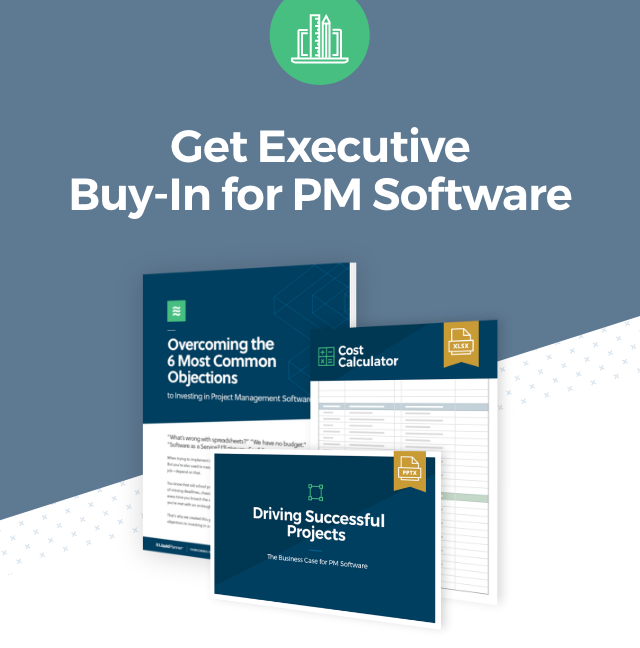As a salesperson in the Software-as-a-Service (SaaS) space, I get to speak to executives who are shopping for new work management tools every day. They’re looking for ways to innovate and speed up their teams—it’s a theme of our times. I constantly hear the phrase “time is money” and in today’s fast-changing business world, it’s never been so true.
Put the phrase, “time is money” into the context of picking and evaluating a software service provider, and the search can be an expensive endeavor. The time it takes to make a decision—which often delays the needed process change—can rival the cost of the program itself!
What makes the decision of purchasing a software solution so challenging?
Two words: Information overload.
The Decision Process Problem
There are seemingly hundreds of pieces of information available when making a decision on a SaaS provider today. If you include additional decision-makers besides yourself, and have everyone try the solution before purchase, you end up with the recipe for a six-month decision that can cost tens of thousands of dollars. What’s worse is when, after all of this, your organization selects a platform that proves to be a poor match for your needs.
If you want to narrow the field of products to consider and make sure they’re the best fit for your team, it’s important to ask the right questions. Nobody knows more than you what you need to accomplish from your software investment, so take the lead. Ask the questions that relate to the value and results you’re looking for. To help you out, here are three basic questions you should ask every SaaS provider while you’re considering and trialing the product.
1. What are the problems your organization solves?
This question is a fast way for you to assess fit—to see if the product’s value proposition matches your own. Take their prioritized list of problems they solve and compare it to your own list. Do their values around problem-solving match yours? You don’t need a 100 percent identical match, but there should be some crossover, especially around top values.
For example: If you are trying, above everything else, to solve a resource management issue, but the company you’re considering is all about enhanced productivity and there’s nothing about allocating and tracking resources in their product, you can probably end the conversation. On the other hand, if you find out the company is invested in solving the issue around resource management, keep talking.
Start with this question, because nothing else matters if you can’t match at a values level.
2. Who are your most successful customers and buyers?
Nothing is better than knowing whether companies like your own are having success using a tool you’re considering. Even more, when people in similar positions as yours are raving about the product—that helps too.
When you ask this question, dig deep. Ask about industry breakdown, the titles of people making the purchases. Is this a group that fits your profile too? If so, that’s a good sign of product fit.
A reputable company will have case studies to support these claims, so go to their website to read the stories; or ask a sales rep to send you customer stories from organizations that are similar to yours.
Go one step further and ask for a comprehensive ROI report—this will help you secure budget when you make your purchasing proposal.
3. What kind of support and onboarding do you offer?
Remember: The company you choose is more than just a product—ultimately you want to purchase from a company that will partner with you and invest in your ongoing success using their product. Any respectable SaaS provider with a complex product will have some sort of support to get you started, if they don’t, it’s time to move on. Some companies go out of their way to include this in the cost, while others charge for it.
The onboarding process is especially important to ask about. See what they offer and how long they partner with you to get the whole team up and running with confidence and ease. This is the make-or-break part of introducing a new tool. If people aren’t transitioned on to a new platform properly, the new software you spent so much time vetting might go unused. This happens more than you might imaging—a huge waste of resources.
Other questions to ask:
- Is the knowledge base easy to find?
- What is the SLA (service level agreement)?
- What is your customer satisfaction around support?
If you’re on the search for a new SaaS tool, you can save yourself time, money and a huge headache by asking important questions around the value of the product:
- Does it solve your problems?
- Will the company be there for you when you roll it out for your team?
- Do you trust the company?
- Can you afford it?
If the answer to these questions are all yes, take the plunge—and thank me later!
Have you found the perfect project management tool, but still need to gain executive buy-in? Read our in-depth guide to building a compelling business case for a new tool.








